Why Your Brain Sees Gods and Ghosts in Random Events
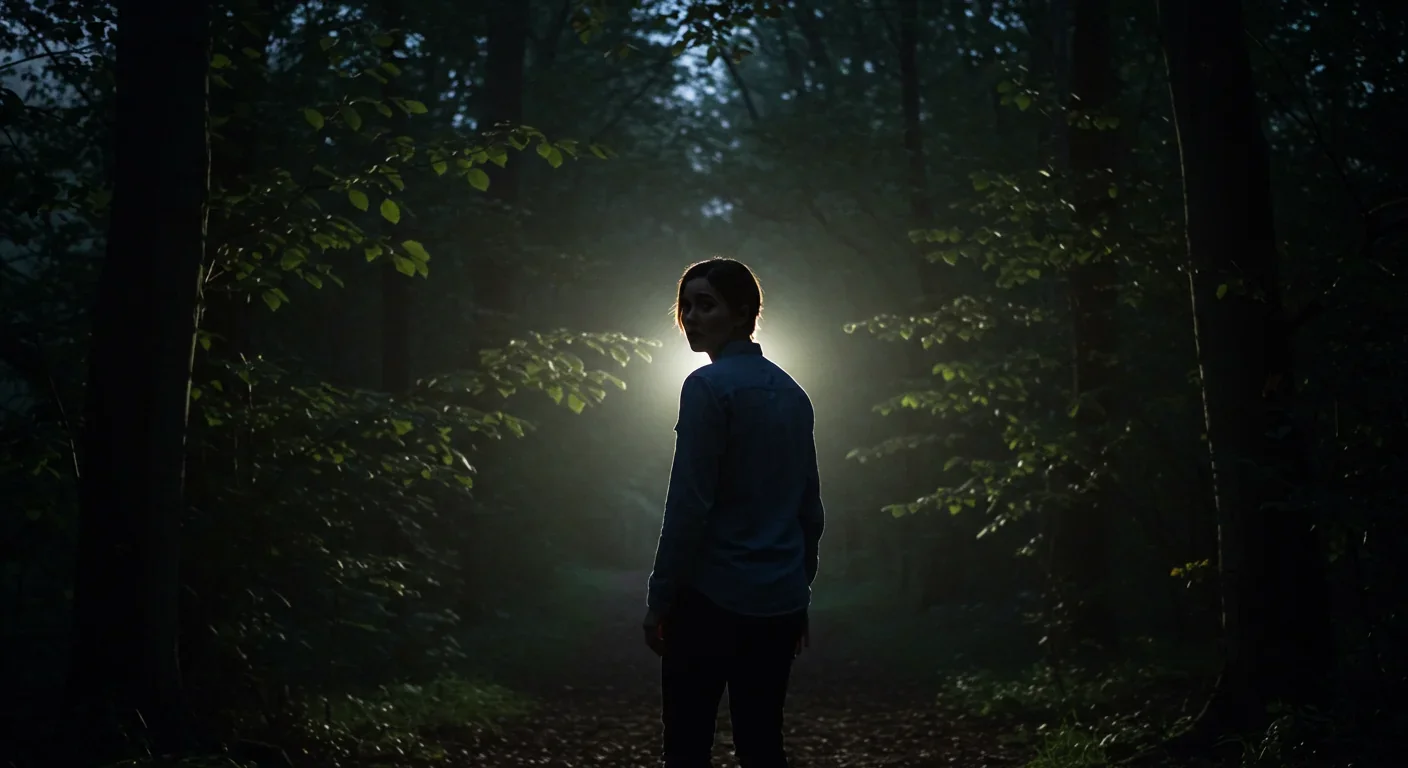
TL;DR: Neuroscience reveals that brain activity begins 300-500 milliseconds before conscious decisions, with modern fMRI predicting choices up to 10 seconds in advance. While hard determinists argue free will is an illusion shaped by biology and environment, compatibilists redefine freedom as acting according to internal desires without coercion. Research shows belief in free will improves motivation and moral behavior, yet understanding determinism can increase compassion. The debate has profound implications for criminal justice, mental health treatment, and personal responsibility—challenging civilization to reconcile subjective agency with objective causation.
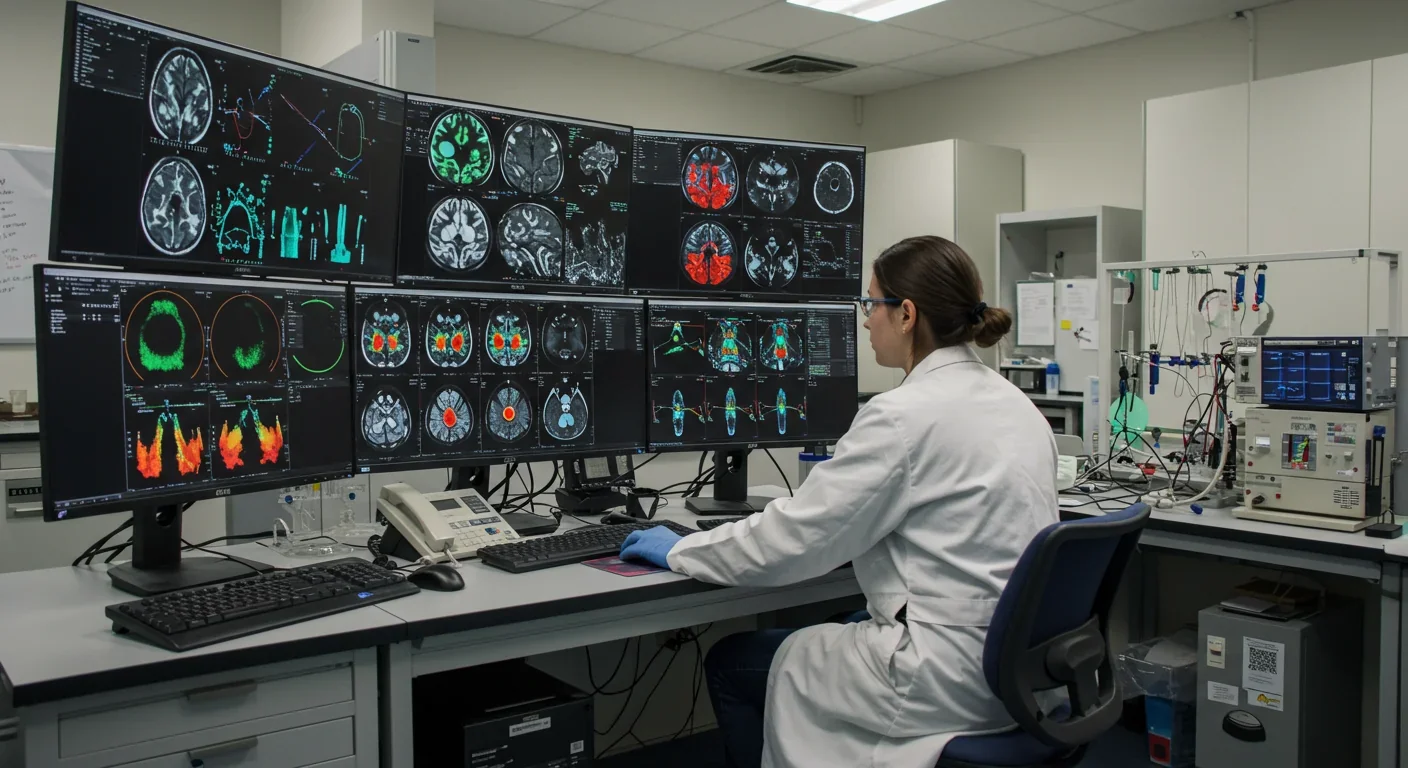
Every decision you've ever made—from this morning's breakfast to your career path—might not have been yours at all. Neuroscientists can predict your choices up to 10 seconds before you consciously "decide," and brain activity begins preparing your actions 300-500 milliseconds before you feel the urge to act. If consciousness arrives after the brain has already committed, do you truly control anything?
In 1983, Benjamin Libet conducted a deceptively simple experiment that would shake philosophy's foundation. Participants sat before a clock, flexing their wrist whenever they felt the spontaneous urge. They noted the exact moment they decided to move. Meanwhile, electrodes measured their brain activity.
The results were unsettling: a wave of electrical activity called the "readiness potential" surged in the motor cortex 300-500 milliseconds before participants reported their conscious decision. Your brain, it seemed, was already committed before "you" decided anything.
Modern neuroscience has amplified this finding. Using fMRI scanners, researchers like John-Dylan Haynes can examine patterns in your prefrontal cortex and predict which button you'll press up to 10 seconds before you consciously choose. The accuracy hovers around 60-70%—not perfect, but far better than chance. The implication is staggering: the conscious experience of choosing may be a post-hoc narration, a story your brain tells after the fact.
For millennia, free will has been the cornerstone of Western civilization. Legal systems hold criminals accountable because we assume they could have chosen differently. Economic models predict behavior based on rational self-interest. Religions preach salvation through moral choice. Democracy itself rests on the premise that citizens can deliberate and decide.
Philosophers from Aristotle to Kant have grappled with the puzzle. Aristotle argued that voluntary action—acting without external compulsion—constitutes freedom. Immanuel Kant proposed that free will exists in a realm beyond the physical laws governing matter, a "noumenal" domain where moral agency resides. For centuries, these frameworks seemed sufficient.
But science has been less accommodating. Isaac Newton's mechanics suggested a clockwork universe: given the positions and velocities of all particles, the future unfolds inexorably. Charles Darwin's evolution implied that our brains—and thus our thoughts—are products of natural selection, shaped by survival pressures, not autonomous will. Quantum mechanics introduced randomness at the subatomic level, but randomness is not the same as control. If your decision arises from a dice roll in your neurons, you're still not steering the outcome.
Neuroscientist Robert Sapolsky describes decision-making as a cascading chain of causation. Every choice you make is the product of:
Neural activity one second before: neurotransmitter levels, recent sensory input, hormonal fluctuations.
Neural activity minutes to hours before: what you ate (blood sugar impacts impulse control), whether you're stressed or relaxed.
Your developmental history: childhood experiences, trauma, education.
Your genetic blueprint: inherited predispositions toward risk-taking, aggression, empathy.
Evolutionary pressures: instincts honed over millions of years to prioritize survival and reproduction.
Cultural conditioning: the society you grew up in, its norms and values.
Sapolsky argues that when you trace this chain backward—from behavior to brain state to hormones to genes to environment to evolution—there's no point where an uncaused "you" intervenes. Every link is itself caused by prior links. Free will, he concludes in his book Determined: A Science of Life Without Free Will, evaporates under scrutiny.
Yet subjectively, free will feels undeniable. When you deliberate over coffee or tea, it seems obvious that you are weighing options and selecting one. Neuroscientist David Eagleman calls this the "illusion of the conscious pilot." Your brain's unconscious systems do the heavy lifting—integrating sensory data, running simulations, weighing outcomes—then deliver a finished decision to consciousness, which takes credit. Consciousness is the narrator, not the author.
Aaron Schurger's research supports this view. He reinterpreted the readiness potential not as an unconscious "decision" but as random neural noise that accumulates until it crosses a threshold, triggering action. Think of it as a pot of water simmering: bubbles rise randomly until one breaks the surface. The bubble didn't "decide" to pop; it reached a tipping point. Similarly, your brain's background activity fluctuates, and when it hits a threshold, you act—then consciousness spins a story about "choosing."

Not everyone accepts that determinism destroys free will. Compatibilists argue that freedom and determinism can coexist—if we redefine freedom.
Philosopher Daniel Dennett contends that free will is not about escaping causation; it's about the right kind of causation. When your actions flow from your beliefs, desires, and reasoning—when they reflect who you are—that's freedom. The opposite of freedom isn't determinism; it's coercion. A mugger pointing a gun at you constrains your choices. Your own deliberative process does not.
Dennett likens free will to an evolutionary achievement. Natural selection sculpted brains capable of modeling the future, anticipating consequences, and adjusting behavior accordingly. This self-control, though deterministic, is sophisticated enough to ground moral responsibility. You don't need metaphysical magic; you need the right cognitive machinery.
G.E. Moore, an early compatibilist, argued that "acting freely" simply means you would have done otherwise had you chosen to. Harry Frankfurt refined this: freedom is identifying with your desires. A heroin addict who hates their craving lacks freedom; a person who embraces their passion for painting has it—even if both desires are causally determined.
Critics counter that compatibilism is semantic sleight-of-hand. Philosopher Galen Strawson asks: if you didn't choose your genes, upbringing, or brain chemistry, how can you be ultimately responsible for actions those factors produce? Compatibilists respond that "ultimate" responsibility is a red herring. Responsibility is about whether you're responsive to reasons, not whether you authored yourself from scratch.
If free will is illusory, should we stop believing in it?
Psychologists Kathleen Vohs and Roy Baumeister ran experiments where participants read passages either affirming or denying free will. Those exposed to deterministic messages subsequently cheated more on tests, helped others less, and showed reduced self-control. Believing you lack agency seems to erode moral behavior.
Other studies find correlations between free-will belief and positive outcomes: greater academic persistence, lower dishonesty, higher helping rates. The mechanism may be motivational. If you think your efforts don't matter—because everything is predetermined—why try? Conversely, believing you control your fate fuels perseverance.
Yet some researchers, including Sam Harris, argue that abandoning free will can increase compassion. If you recognize that a criminal's actions stem from a brain shaped by genes and trauma beyond their control, you're less likely to indulge in vengeful punishment and more likely to focus on rehabilitation and prevention. Harris writes that letting go of the free-will illusion "can increase compassion and reduce hatred."
Neuroscientist Sapolsky echoes this: understanding the biological roots of behavior should make us kinder. If someone's aggression traces to childhood abuse, frontal lobe damage, or low serotonin, moral outrage gives way to empathy. The challenge is maintaining this compassion without excusing harmful actions.
The legal system assumes defendants could have chosen otherwise. This assumption justifies punishment. But if neuroscience is right—if every criminal act is the inevitable product of prior causes—what becomes of culpability?
Some legal scholars propose a shift from retributive justice (punishment for moral desert) to consequentialist justice (interventions to protect society and deter future harm). You wouldn't punish someone for having epilepsy, but you might restrict their driving to prevent accidents. Similarly, a deterministic framework could justify incarceration for public safety without moral condemnation.
Judges already grapple with neuroscience in sentencing. Brain scans showing frontal lobe abnormalities have been presented as mitigating evidence, reducing sentences. Yet this raises troubling questions: if biology excuses behavior, does that mean anyone with a "defective" brain escapes responsibility? And who decides what counts as a defect?
Critics worry that neuroscience could be weaponized. Authoritarian regimes might label dissidents as neurologically deviant, justifying coercion as "treatment." Or, conversely, over-decriminalization could leave victims without recourse. Sapolsky warns that misapplying determinism risks distorting justice, not perfecting it.
Ethics, too, must reckon with determinism. If moral responsibility requires free will, and free will is an illusion, does morality collapse? Compatibilists say no: moral judgments are tools for shaping behavior. Praising kindness and condemning cruelty influences future actions, even in a deterministic universe. Morality doesn't need metaphysical freedom; it needs causal efficacy.
Given the evidence, why does free will feel so real?
Evolutionary psychologists suggest the illusion serves a function. Humans are social animals; cooperation depends on holding each other accountable. Belief in free will underpins blame, praise, and reciprocal trust. A society convinced of determinism might struggle to maintain norms. Natural selection may have favored brains that construct a narrative of agency, even if it's false.
Additionally, the brain's architecture hides its own processes. You don't experience the firing of neurons or the release of dopamine—you experience a thought or urge. This opacity creates the sense that decisions emerge from an autonomous "self" rather than neural machinery.
Benjamin Libet himself proposed a loophole: "free won't." While unconscious processes initiate actions, consciousness can veto them in the ~200 milliseconds after the readiness potential but before execution. You might not freely start a decision, but you can freely stop it. This "veto power" offers a sliver of agency within determinism.
Neuroscience hasn't definitively settled whether such vetoes are themselves determined. Schurger's model suggests even the veto is a threshold-crossing event in neural noise. Still, the phenomenology—the feeling of restraint—may be psychologically significant.
Interestingly, Stoic philosophers grappled with this paradox 2,000 years ago. Chrysippus wrote, "All that happens is followed by something else which depends on it by causal necessity." The Stoics accepted that external events—fate—are determined. Yet they insisted humans possess prohairesis, the freedom to choose their attitudes and responses.
Epictetus famously divided the world into what's "up to us" (our judgments, intentions) and what's not (other people's actions, natural events). You can't control the storm, but you can control whether you panic or remain calm. This internal locus of control aligns with compatibilism: you're free when you act according to your reasoned judgments, even if those judgments are causally produced.
Stoic practices like praemeditatio malorum—visualizing obstacles and rehearsing responses—effectively train the brain's veto mechanism. By pre-planning reactions, you strengthen the conscious override Libet identified. Modern cognitive-behavioral therapy echoes this: changing thought patterns changes behavior, within deterministic constraints.

Whether or not free will exists, you still face choices daily. How should this knowledge shape your life?
Increase self-compassion. If your struggles stem from biology and circumstance, self-blame becomes irrational. You didn't choose your genetic vulnerabilities or early trauma. Recognizing this can ease guilt and foster self-kindness.
Extend compassion to others. Understanding that people's flaws are products of forces beyond their control can reduce judgment. This doesn't mean tolerating harm, but it reframes wrongdoing as a systems problem, not pure moral failure.
Leverage causal knowledge. Even in a deterministic universe, causes have effects. Exercise improves mood. Therapy rewires neural circuits. Education shapes decision-making. You may not have libertarian free will, but you can engineer your environment and habits to produce better outcomes.
Embrace humility. The illusion of free will inflates ego: "I succeeded because I'm talented; they failed because they're lazy." Determinism deflates this. Success and failure both depend on luck—genetic, environmental, circumstantial. This humility can make you kinder and more cooperative.
Retain practical agency. Philosopher Daniel Dennett argues that even if free will is an illusion, it's a useful one. Acting as if you have control motivates effort. The trick is holding this pragmatic stance without lapsing into metaphysical confusion.
If free will is an illusion, the implications ripple across society:
Criminal justice reform. Scandinavian countries already emphasize rehabilitation over retribution, with lower recidivism rates. A deterministic framework could accelerate this shift globally, focusing on prevention, treatment, and public safety rather than moral desert.
Mental health destigmatization. Viewing addiction, depression, and anxiety as brain-state disorders—not moral failings—could reduce stigma and increase treatment-seeking.
Education reimagined. If talent and motivation are products of biology and environment, education systems might focus more on equity—ensuring every child has the inputs (nutrition, safety, stimulation) that enable success.
Economic systems questioned. Meritocracy assumes people deserve their wealth because they earned it through effort. Determinism challenges this: if effort itself is caused by factors you didn't choose, why do you deserve more than someone less fortunate? This could bolster arguments for wealth redistribution.
Human rights grounded differently. Currently, rights are often justified by appeals to human dignity or moral agency. A deterministic framework might ground rights in well-being and flourishing instead—rights protect sentient beings from suffering, not because they're free agents, but because suffering is intrinsically bad.
The science is unsettling: your brain decides before "you" do. Philosophy offers no consensus: libertarians, hard determinists, and compatibilists argue endlessly. Psychology reveals that belief in free will matters, even if it's false. And law, ethics, and society must adapt to a world where causation runs deeper than intention.
Yet here you are, at the end of this article, deciding what to do next. Maybe that decision was inevitable. Maybe it was shaped by neural noise crossing a threshold. Maybe it's a story your consciousness tells after the fact. Or maybe—just maybe—it's a sophisticated form of self-control that evolution gifted you, a way of navigating a deterministic universe with something resembling freedom.
Whatever the truth, you'll keep acting as if you have agency. You'll deliberate, choose, regret, and try again. You'll hold yourself and others accountable. You'll strive to improve. And whether that striving is free or fated, it's the only game in town.
The illusion of free will, if it is an illusion, might be the most useful lie you'll ever believe. Or perhaps it's not a lie at all—just a truth more subtle than metaphysics has yet captured. Either way, the next move is yours. Or is it?
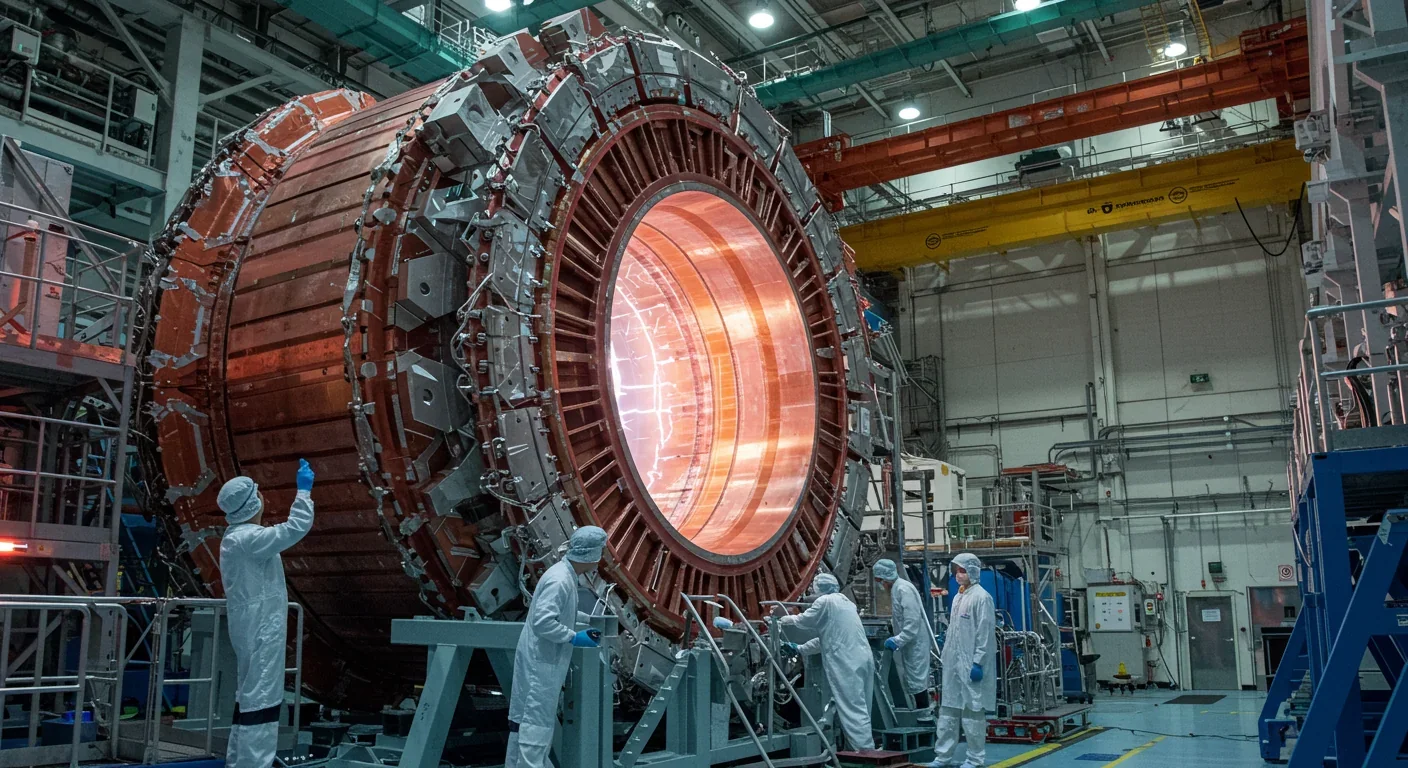
Recent breakthroughs in fusion technology—including 351,000-gauss magnetic fields, AI-driven plasma diagnostics, and net energy gain at the National Ignition Facility—are transforming fusion propulsion from science fiction to engineering frontier. Scientists now have a realistic pathway to accelerate spacecraft to 10% of light speed, enabling a 43-year journey to Alpha Centauri. While challenges remain in miniaturization, neutron management, and sustained operation, the physics barriers have ...

Epigenetic clocks measure DNA methylation patterns to calculate biological age, which predicts disease risk up to 30 years before symptoms appear. Landmark studies show that accelerated epigenetic aging forecasts cardiovascular disease, diabetes, and neurodegeneration with remarkable accuracy. Lifestyle interventions—Mediterranean diet, structured exercise, quality sleep, stress management—can measurably reverse biological aging, reducing epigenetic age by 1-2 years within months. Commercial ...
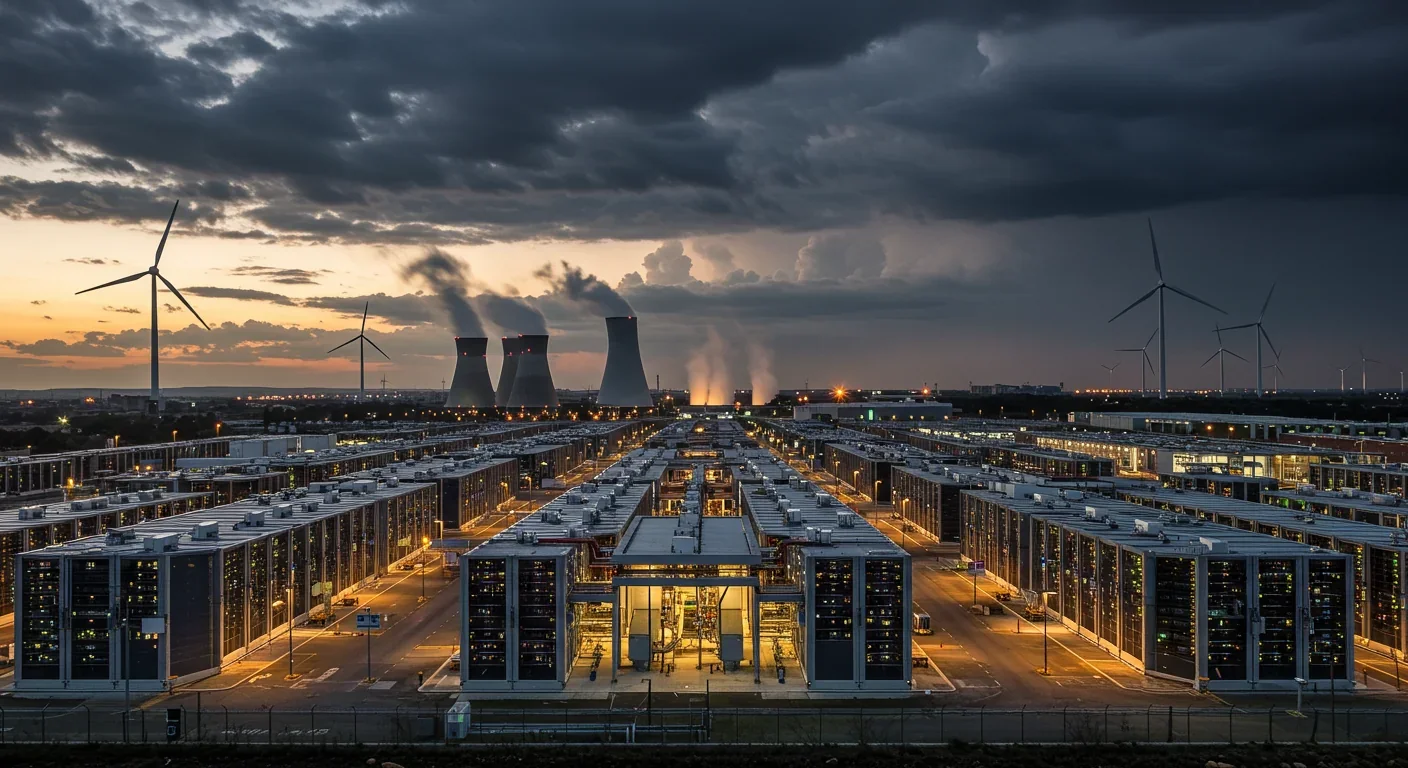
Data centers consumed 415 terawatt-hours of electricity in 2024 and will nearly double that by 2030, driven by AI's insatiable energy appetite. Despite tech giants' renewable pledges, actual emissions are up to 662% higher than reported due to accounting loopholes. A digital pollution tax—similar to Europe's carbon border tariff—could finally force the industry to invest in efficiency technologies like liquid cooling, waste heat recovery, and time-matched renewable power, transforming volunta...

Humans are hardwired to see invisible agents—gods, ghosts, conspiracies—thanks to the Hyperactive Agency Detection Device (HADD), an evolutionary survival mechanism that favored false alarms over fatal misses. This cognitive bias, rooted in brain regions like the temporoparietal junction and medial prefrontal cortex, generates religious beliefs, animistic worldviews, and conspiracy theories across all cultures. Understanding HADD doesn't eliminate belief, but it helps us recognize when our pa...

The bombardier beetle has perfected a chemical defense system that human engineers are still trying to replicate: a two-chamber micro-combustion engine that mixes hydroquinone and hydrogen peroxide to create explosive 100°C sprays at up to 500 pulses per second, aimed with 270-degree precision. This tiny insect's biochemical marvel is inspiring revolutionary technologies in aerospace propulsion, pharmaceutical delivery, and fire suppression. By 2030, beetle-inspired systems could position sat...

The U.S. faces a catastrophic care worker shortage driven by poverty-level wages, overwhelming burnout, and systemic undervaluation. With 99% of nursing homes hiring and 9.7 million openings projected by 2034, the crisis threatens patient safety, family stability, and economic productivity. Evidence-based solutions—wage reforms, streamlined training, technology integration, and policy enforcement—exist and work, but require sustained political will and cultural recognition that caregiving is ...
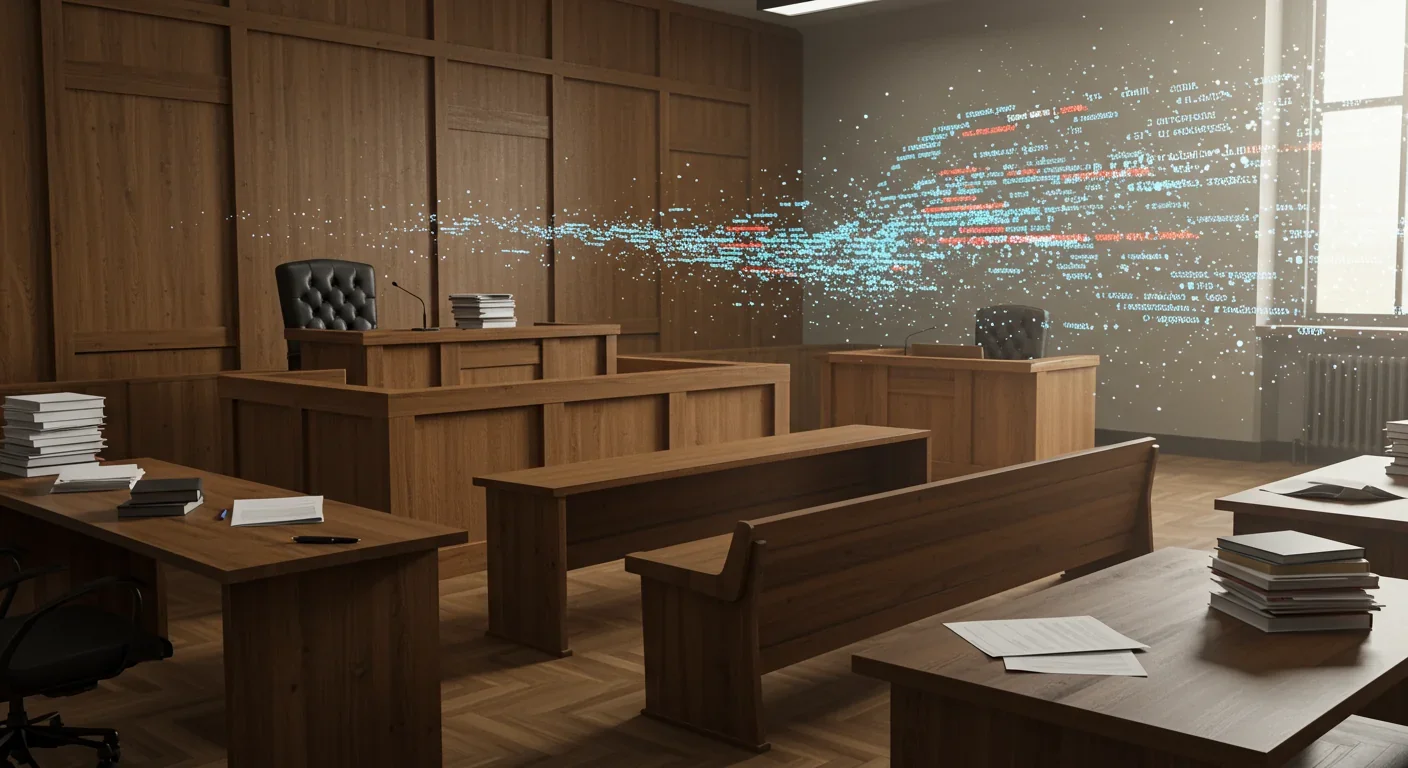
Every major AI model was trained on copyrighted text scraped without permission, triggering billion-dollar lawsuits and forcing a reckoning between innovation and creator rights. The future depends on finding balance between transformative AI development and fair compensation for the people whose work fuels it.